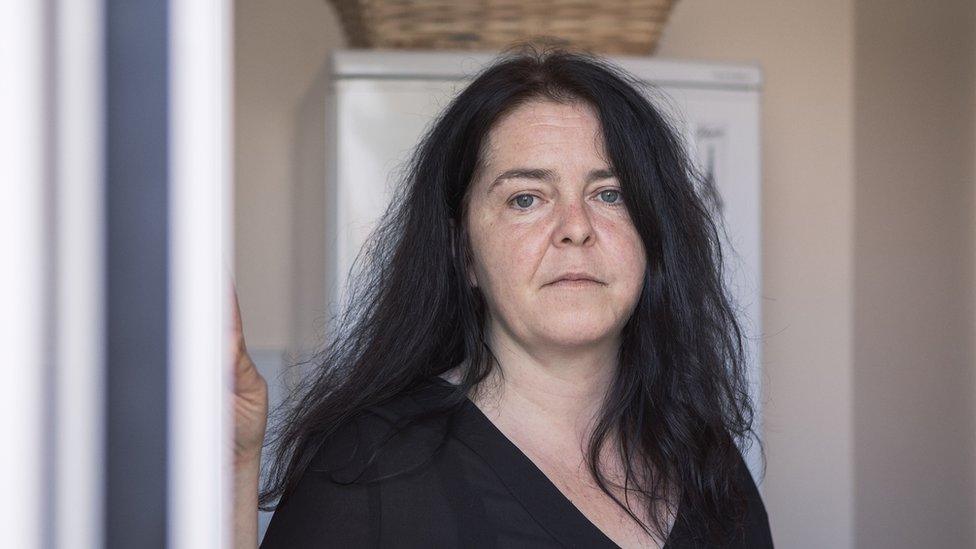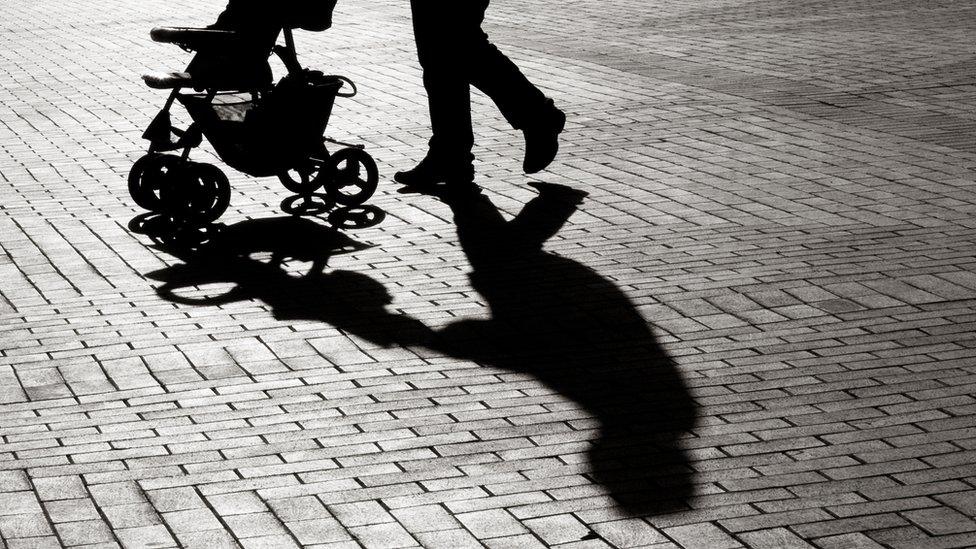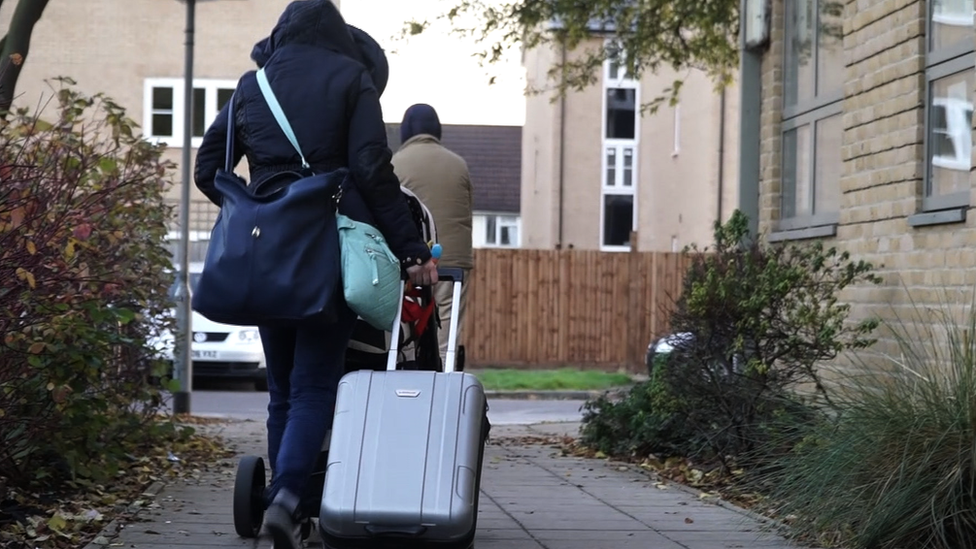More than half of homeless families in work, says Shelter
- Published
Channel 4 Dispatches presenter Datshiane Navanayagam was made homeless as a child and again as a working adult.
More than half of families living in temporary accommodation in England are in employment "working every hour they can", says housing charity Shelter.
Its analysis suggests 55% of families (33,000) living in temporary digs were also working in 2017 - up 73% on 2013.
The charity blames a mix of expensive private rents, a housing benefit freeze and a chronic lack of social housing.
The government said it was investing £1.2bn to support homeless people.
Temporary accommodation is the property offered to people by local authorities after they have been declared without a permanent home.
"The link between an income and a job, which used to be enough to secure a home, is just completely breaking down in the housing market," Greg Beales, Shelter's director of policy, told BBC Breakfast.
'No space for family life'
Chief executive Polly Neate said it was disgraceful that families were forced to experience homelessness despite working "every hour they can".
"In many cases, these are parents who work all day or night before returning to a cramped hostel or B&B where their whole family is forced to share a room," she added.
"A room with no space for normal family life like cooking, playing or doing homework.
"We cannot allow struggling families to slip through the cracks created by our housing crisis - the government must urgently come up with a new plan for social housing that delivers the genuinely affordable homes we desperately need."
Based on Shelter's research, Channel 4 Dispatches has created a programme looking at homelessness in working people.
Presenter Datshiane Navanayagam has experienced homelessness herself - as a child and then again as a working adult.
"The basic reason why anyone goes to work, is because they think that should at least afford them somewhere to live and when that's not happening, you're in a very frightening situation, "she told BBC Breakfast.

Mary and her children lived in three temporary homes in two years
One mother of three, Mary Smith, who lives in temporary accommodation with her sons in Watford, described how she struggled to hold on to her job in a shoe shop because of her housing situation.
She said: "Sometimes I even think that I don't want to wake up in the morning, but I do.
"I get on with it because I have other people relying on me."
'Tough on children'
She added: "Letting my colleagues know at work what's happening is very hard.
"Luckily I have an understanding manager now, but I nearly lost my job when I first became homeless because the transport links from my hostel were so bad.
"We've lived in three different places in two years, and it's been really tough on the children."
The charity's analysts arrived at the 33,000 figure by combining Department for Work and Pensions statistics on the number of families known to be in work but homeless, official data on homelessness from the Ministry of Housing, Communities and Local Government (MHCLG) and housing benefit data.
A MHCLG spokesman said its Homelessness Reduction Act would ensure more struggling people are provided with support.
He said: "Councils have a duty to provide suitable temporary accommodation to those who need it, and families with children get priority.
"So families can get a permanent home, we are investing £9bn in affordable properties, including £2bn for social rent housing."
- Published24 March 2018

- Published14 December 2017
